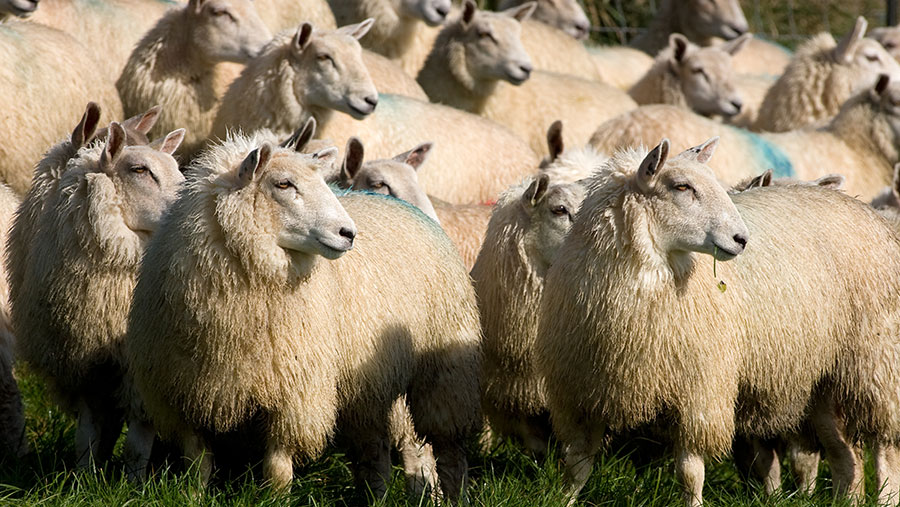Two iceberg diseases covered by flock testing schemes
 © Tim Scrivener
© Tim Scrivener UK sheep farmers can enrol on two monitoring schemes to give assurance to themselves and buyers over two costly infectious diseases.
Maedi visna and Johne’s disease monitoring programmes have been launched by Scotland’s Rural College (SRUC) this week.
The initiatives will sit below the Premium Sheep and Goat Health Scheme (PSGHS) accreditation, which SRUC says will remain the gold standard.
The two schemes provide a level of assurance for buyers looking to reduce disease risk, said the college. Other diseases could be added in the future.
See also: How to identify, prevent and treat the five sheep ‘iceberg diseases’
NSA reaction
“The National Sheep Association very much welcomes the new testing schemes. Their launch comes at a time when sheep farmers are becoming increasingly aware of the effect iceberg diseases can have on their flocks.
“These new monitoring schemes can offer a method of increasing productivity through identifying sheep that could cause further losses and reduce the efficiency of the flock. This is something all farmers will need to be aiming for as changes to policy and support schemes place emphasis on high-welfare, efficient production methods.”
Phil Stocker, National Sheep Association, chief executive
Targeted testing
SRUC vets have decided on targeted testing, which means fewer animals need testing overall, compared with random selection testing.
Farmers should select animals for testing with their vet, picking out thinner sheep or ewes that have raised poor lambs or had poor milk yield without obvious lameness of dental disease.
Membership will require an annual farm biosecurity appraisal with a farm vet.
A flock health status report will record the number of years a flock has been monitored, and certification will be awarded annually.
Helpful for breeders
Bluefaced Leicester and Scotch Mule breeder Derek Hall, Mule Group chairman, welcomed the scheme and said he would enrol.
Mr Hall added: “It will help commercial farmers, who are unable to go for full accreditation, get an idea of the underlying health issues in their flock and provide valuable reassurance to potential customers looking to buy breeding stock.”
How testing will work
- Testing can be done at any time of year
- Membership is annual and requires a farm biosecurity assessment carried out by a vet
- Testing is to be done on three main groups – rams, high-risk targeted animals (see final bullet point) and a proportion of incoming animals of lower health status
- Members are asked to give six weeks before animals are sold to allow time for sampling, testing and reporting
- Samples must be taken by the farm’s vet
- Smaller flocks with fewer than 500 animals should test 12 targeted sheep, and larger flocks with more than 500 animals should test 20
To find out more, visit www.sheepandgoathealth.co.uk or email psghs@sruc.ac.uk
